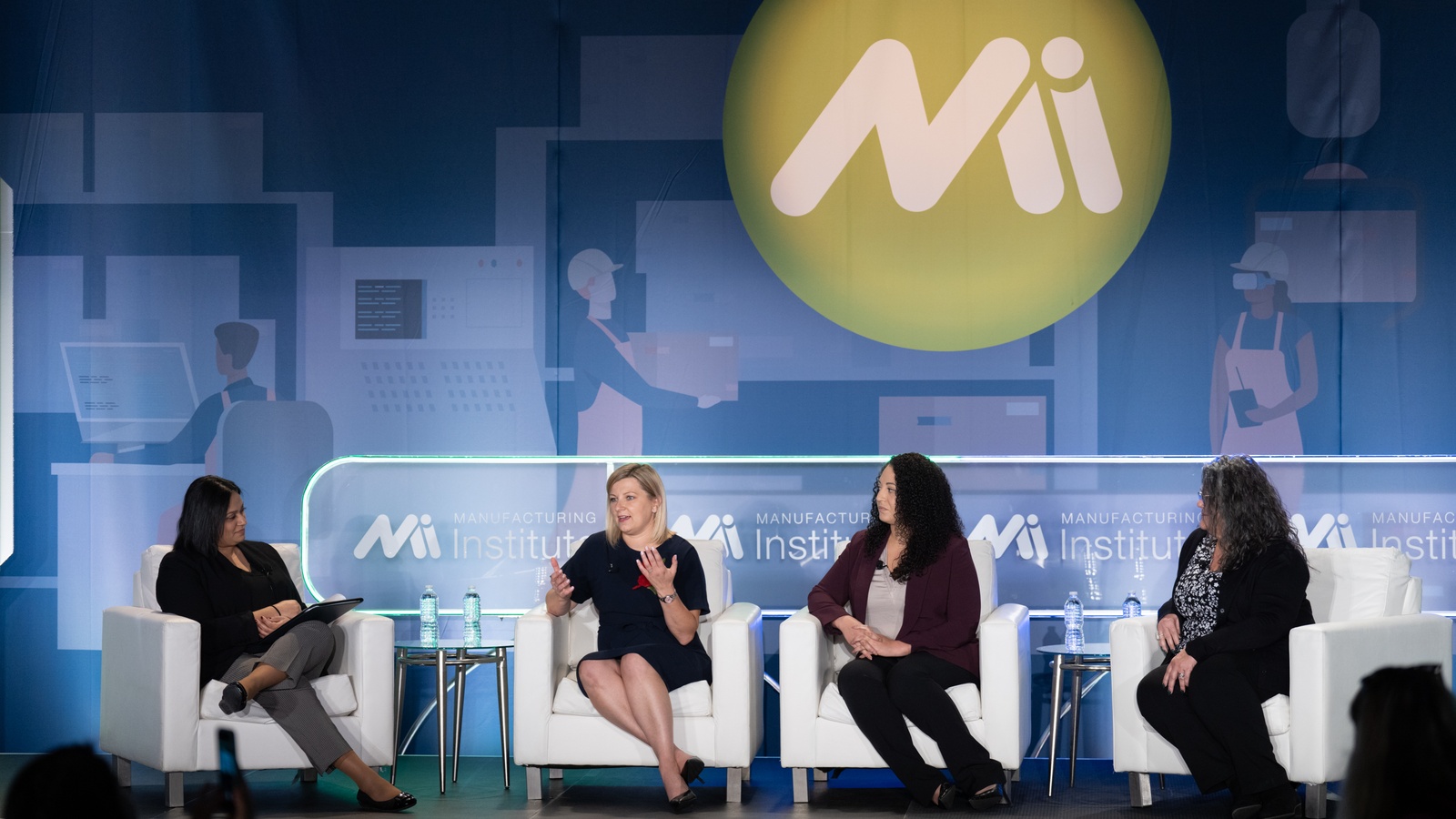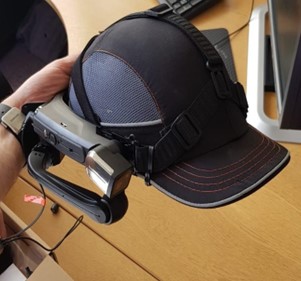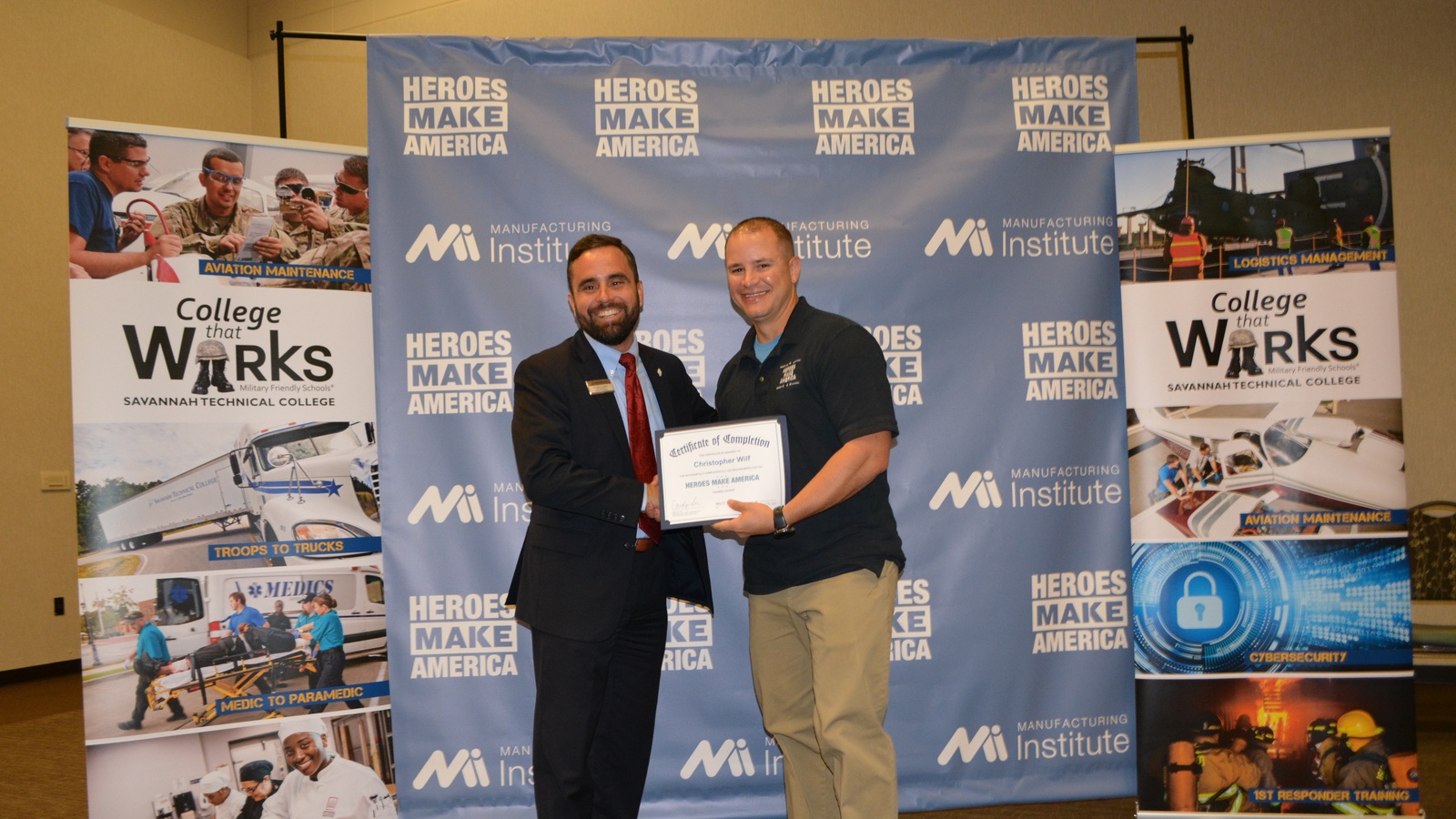NAM to Congress: Reverse Course on Harmful Tax Changes

Recent tax law changes that increase the costs of research, machinery purchases and key business investments will harm manufacturers “at a time when 62% of manufacturing leaders already expect a recession in 2023,” the NAM told congressional leaders Monday.
What’s going on: Beginning in 2022, businesses that had for decades been allowed to immediately deduct research and development expenses had to begin amortizing these costs over years, making innovation more expensive.
Why it’s important: The change creates a competitive disadvantage for manufacturers in the U.S., as “China, which has made no secret of its ambition to become the world leader in advanced manufacturing, currently provides a 200% deduction for R&D expenses for manufacturers,” NAM Senior Vice President of Policy and Government Relations Aric Newhouse told the Senate Finance Committee and the House Ways and Means Committee.
What can be done: Congress should reverse course to avoid harming manufacturers, Newhouse said. Here’s what lawmakers should do:
- Reverse the R&D amortization provision: Policymakers should allow manufacturers to go back to being able to deduct 100% of their R&D expenses in the same year in which they are incurred.
- Protect interest deductibility: Congress must reverse the new, stricter limit on interest deductibility (the earnings before interest and tax, or EBIT, standard) and return to the “standard in place prior to 2022, which was based on earnings before interest, tax, depreciation and amortization.”
- Return to full expensing: Lawmakers should go back to allowing businesses to take 100% deductions for equipment and machinery purchases in the tax year of purchase.
The last word: By making these changes, Newhouse said, “Congress can help ensure that manufacturers, especially small manufacturers, can continue to invest in their operations, their workers and America’s future.”
What to Know about Hiring Military Talent
With 200,000 people transitioning out of the military annually in addition to veterans, reservists and military spouses, the military population represents a highly skilled workforce. At a recent roundtable, panelists from Smithfield Foods, Dow and National Gypsum discussed how the manufacturing industry can leverage this population’s strengths.
Key Insights
- Manufacturers should identify a leader with military background in their organization to support the hiring process, particularly in parsing military and manufacturing lingo in job descriptions and resumes.
- Manufacturers should communicate if they will accept military experience as an equivalency to an associate’s or bachelor’s degree in their job descriptions.
- Networking can be the determining factor in getting an interview and landing a job offer. The MI will be hosting a virtual hiring fair in late February. Keep an eye on our website for more updates!
- Employee resource groups can be an excellent resource for newly hired military talent and can advocate for population-specific needs.
Read the full article here.
How Manufacturers Should Pursue Second Chance Hiring

With one-in-four Americans possessing a criminal record, manufacturers who pursue “second chance hiring” are accessing a diverse and motivated talent pool. What do they need to know to begin?
At the Manufacturing Institute’s inaugural Workforce Summit, held in Cincinnati, Ohio, last October, panelists from manufacturers Saint-Gobain and JBM Packaging and from Envoy, a social impact advisory firm specializing in fair chance employment, shared tips on how to create such hiring programs.
Risk assessment: While safety is a concern, panelists emphasized that there is a difference between perceived risk and actual risk.
- “The data shows that second chance individuals are retained longer, have higher productivity and engage in more training than the average individual that you bring in,” said Cassi Zumbiel, managing director at Envoy.
- Saint-Gobain uses “a framework for background checks which we have developed in collaboration with our legal team. Candidates in the second chance hiring programs demonstrate higher level of commitment and a proactive approach to job searching, setting themselves up for success in future roles. We like to collaborate with our community partners in order to provide a good candidate experience and a seamless recruiting process,” explained Magda Dexter, senior vice president of communications and human resources at Saint-Gobain.
- For JBM Packaging, it’s about having honest and transparent conversations with candidates about their backgrounds. JBM also works with case managers to get referrals and assess candidates’ fit with the company.
How to get started: Dexter recommended that companies start with a pilot program, then scale it up, noting that it’s important to select a site that has the right culture, an engaged plant manager and HR support.
- Saint-Gobain has also tried out a variety of different support systems across their company, including hiring a part-time social worker as well as instituting a buddy system and a mentoring program.
- Zumbiel encouraged companies to do background checks only after a conditional offer has been made, recommending that companies should limit the look-back period to three to seven years. “That helps eliminate some of that bias and makes you really look at the candidate holistically.”
- Panelists also noted that it was important to review job descriptions to make sure they specify that second chance candidates are welcome.
From jobs to careers: Ninety percent of JBM’s second chance hires are entry-level production workers; the other 10% have mechanical or machinist skills and fill entry-level technical roles. However, Valerie Plis, director of human capital and culture at JBM, realized there was a lot of experience that the company wasn’t tapping into.
- Plis shared a story of a second chance hire who started as a machine operator. As Plis got to know her, she realized that the new hire had a background in training. The new hire progressed from an operator trainer to a lead trainer, then joined the HR team. In addition to leading training across the company, she now helms the second chance recruiting initiative, coming back full circle.
- Plis added, “At JBM, we started working on putting together some very defined career paths. It’s changed the way we conduct our performance reviews, so now we’re focused on growth and development.”
Succeed by partnering: While second chance hires come with a lot of benefits, there are also some challenges that are unique to this population. Partnering with community organizations can help, the panelists said.
- For Dexter, it’s about figuring out what the company will offer and what the community partners will offer. “We will support with on-the-job training. We will support with [providing] structure at work. We will rely on [our community partners] for job readiness and life skills training.”
- Zumbiel noted that “the community partner can advocate for the employer about the great opportunities and the benefits of working in manufacturing” and also prepare candidates to ace their interviews.
The last word: “A lot of the things we implemented, we thought we were doing just for our second chance population, but they actually ended up becoming a huge benefit for our entire workforce,” Plis said.
How Smart Glasses Helped a Manufacturer Through the Pandemic

How does an expert in one facility guide an engineer halfway across the country through implementing a new technology? Food and beverage packaging manufacturer Crown Holdings found an innovative answer during the pandemic, when its employees couldn’t travel freely: it equipped them with smart glasses.
This pilot program, the subject of a new case study by the Innovation Research Interchange (the NAM’s innovation division), has shown a great deal of promise. Here’s some of what the company has learned so far.
How it worked: The glasses make it possible for experts to connect with on-site workers in real time, thanks to their built-in cameras, microphones, speakers and high-resolution display. The glasses can even be integrated with Microsoft Teams.
- “When the pandemic started, we were trying to coordinate commissioning activities through email and WhatsApp messaging,” said Crown Holdings Project Industrial Engineer Leon Azzi. “Tasks that normally took two to three days were taking weeks.”
- But with the glasses, “[The workers] could share with each other the PLC (programmable logic controllers) electrical diagrams and pictures using the glasses viewer, and the remote experts could point them to areas to focus on in real time,” said Crown Holdings Digital Optimization Team Head Alberto Rodriguez.
Working out the kinks: The company is still perfecting its use of the glasses, which do need some optimization for a manufacturing environment.
- One issue is with the Wi-Fi, since the glasses need a consistent connection that is sometimes hard to find in a manufacturing facility.
- In addition, the integrated noise cancellation headphones that come with the glasses need some upgrades, as the workplace can be incredibly loud and impede easy communication.
- Workers also found the weight of the glasses on their heads to be uncomfortable at times, especially as they were already wearing other safety equipment.
- And last, the screen in the smart glasses is relatively small, which can make it difficult for workers to read.
 The path ahead: Crown Holdings considers the program to be a success and plans to expand its use of smart glasses in other areas, including worker training and the mapping of visual data onto equipment. It also hopes the glasses can improve worker interactions with machines via their voice recognition technology, which could allow remote workers to zoom in or capture photos from afar through voice commands.
The path ahead: Crown Holdings considers the program to be a success and plans to expand its use of smart glasses in other areas, including worker training and the mapping of visual data onto equipment. It also hopes the glasses can improve worker interactions with machines via their voice recognition technology, which could allow remote workers to zoom in or capture photos from afar through voice commands.
Learn more: Read more about Crown Holdings’ experience at the IRI Learning Center.
Manufacturers Support Aid for Eastern Europe

It’s been nearly a year since Russia’s invasion of Ukraine, but NAM partner Project HOPE hasn’t let up on its humanitarian aid efforts. With the generous support of many NAM members, it has helped tens of thousands of people who have seen their lives torn apart by the conflict.
What’s going on: Project HOPE—the global health and humanitarian aid organization on the ground providing relief in Ukraine and supporting refugees in Poland, Romania and Moldova—is delivering millions of dollars in medicines, medical supplies, trauma care training, mental health assistance and more to those in need.
What’s been accomplished: To date, the humanitarian relief organization has:
- Delivered 24 generators to health facilities and 34,000 hygiene kits and nonfood items in Ukraine;
- Launched 10 mobile medical units that have treated more than 35,000 patients in Eastern Europe;
- Partnered with 13 local organizations in Eastern Europe to support emergency response;
- Helped provide medical care to more than 5,800 Ukrainian refugee children in Poland;
- Provided nine child playrooms in Moldova that have provided services to more than 3,750 Ukrainian refugee children; and
- Donated more than 300 wheelchairs and other mobility equipment to refugees and others living with disabilities in Romania and Ukraine.
Helping those in need: “Manufacturers are committed to giving back: saving lives, protecting communities and responding quickly in times of trouble,” said NAM Emergency Response Committee Co-Chair and Senior Director of International Trade and Regulatory Affairs Ryan Ong.
- “That includes efforts to stand with the people of Ukraine through strong support to those providing badly needed help in the region. That’s why we’ve been pleased to support and partner with Project HOPE, which is making a difference on the ground.”
The last word: “We are so grateful for the support of the NAM community who has been an integral partner in our Ukraine response,” said Project HOPE Executive Vice President of Global Health Chris Skopec.
- “As we approach the one-year anniversary of the Russian invasion of Ukraine, we at Project HOPE remain committed to continuing to deliver medicines, medical supplies, mental health support and other urgent assistance for the people of Ukraine.”
Get involved: If you’d like to donate to those in need in Ukraine and the region, you can do so via the NAM’s partnership with Project HOPE. For more information about NAM efforts or to share what your company is doing, contact the NAM Emergency Response Committee at [email protected].
Sargento Makes a 10-Year-Old Boy’s Wish Come True
On Dec. 21, 2021, the Ball family from Winston-Salem, North Carolina, received devastating news: their son Maxx had Ewing sarcoma, a rare form of bone cancer that typically occurs in children and young adults.
Maxx’s wish: As he battled the potentially life-threatening disease, 10-year-old Maxx, whose cancer is now in remission, had one wish: to travel to Wisconsin to learn about the cheese-making process.
- “Most kids choose Disney World or a trip to Hawaii, but not my son,” said his mom Lauren. “He loves cheese and all things dairy, so he wanted to come to Wisconsin.”

From wish to reality: The Make-A-Wish Foundation contacted Plymouth, Wisconsin–based Sargento—a leading manufacturer of shredded, sliced and snack natural cheese products—which was thrilled to grant Maxx’s wish.
Sargento has been a longtime supporter of the Make-A-Wish Foundation, partnering with other local businesses on an annual golf-related fundraiser that provides substantial support for Make-A-Wish Wisconsin. Sargento’s Executive Vice President of Operations and third-generation family owner, Mike McEvoy, has also served on the board of Make-A-Wish Wisconsin.
The itinerary: After arriving in Madison the Friday before Thanksgiving, Maxx and his family visited the Center for Dairy Research at the University of Wisconsin–Madison. He also met Wisconsin Gov. Tony Evers, visited

the Wisconsin State Capitol building, checked out the House on the Rock and then traveled to Green Bay to tour Lambeau Field. But the final day of his Dairyland tour was a stop at Sargento’s new location: Baker Cheese in St. Cloud, Wisconsin.
The visit: Sargento General Manager Brian Baker and Master Cheese Maker Jeff LeBeau provided a tour of the facility and explained the cheese-making process in detail. Maxx helped with making cheese curds, learned the documentation process and even operated one of the facility’s computer systems.
- “On our tour, he kept saying, ‘This is awesome,’” said Baker. ‘It really put Thanksgiving into perspective. They are a wonderful family, and what he’s gone through, to be here and to be so engaged and on the other side of his diagnosis, shows what’s really important.’”
The last word: “It was a great day, and it was a pleasure to help make Maxx’s wish come true,” said Sargento Vice President of Human Resources and Community Relations Karen Lepisto.
Talking Cybersecurity with NAM COO Todd Boppell

What should manufacturers know about cybersecurity threats? NAM COO Todd Boppell recently appeared on Mandiant’s “Defender’s Advantage Podcast” to explain how cyber criminals are targeting manufacturers today and what companies can do to protect themselves. Here’s some of his advice.
The threat today: While cyberthreats are nothing new, in recent years there has been a sea change, Boppell said.
- “I think what’s really changed in the past five years, especially—it probably started in the past 10, but it’s massively accelerated—is that cybercrime as a business model is on the rise,” he said.
- “A lot of the bad guys, whether their motivations are political or purely economic, have realized that ransomware and other forms of pure disruption are sometimes just as helpful or just as lucrative as stealing any sort of intellectual property.”
Manufacturing as a target: Manufacturers get victimized by ransomware attacks “because manufacturing is one of the least tolerant industries of any sort of downtime,” Boppell continued.
- “Over the past five years, manufacturing was always in the top three [sectors targeted by cyber criminals], typically with medical and financial services … but really over the past 18 to 24 months, all the data I have seen says that manufacturing has jumped to number one and has stayed there.”
What small businesses need to know: Small businesses may believe that they are beneath notice for cyber criminals, but that’s not the case, said Boppell.
- Once they come to terms with that depressing reality, small companies should take a look at their staff and
 operations, he said. “Do they have the talent on staff to understand what they should do, what their risks are, which systems they currently have that need to be addressed? Do they understand all the acronyms at play? Do they understand the different threat vectors?”
operations, he said. “Do they have the talent on staff to understand what they should do, what their risks are, which systems they currently have that need to be addressed? Do they understand all the acronyms at play? Do they understand the different threat vectors?”
- And last, once the company generally knows what it’s doing and perhaps has some IT support, it should consider its budget, and how it can “get the most bang for its buck.”
What large businesses need to know: “Larger companies want to be helpful, and they want to help secure their supply chain partners, because it is absolutely in their best interests. … However, they are unbelievably busy just protecting their own boundaries and just worrying about all the attacks they’re facing,” Boppell said.
- “And of course, it’s always a little bit frustrating for smaller companies to have a larger company try to tell them what to do … so you have to really manage those relationships and figure out the right way to go in and help.”
The most important thing: “The number-one thing I’m trying to get through, and the number-one myth I want to dispel, is that a lot of small manufacturers believe that … they have no IP to protect,” said Boppell. “Maybe they make screws and fasteners, or maybe they make mattresses or whatever. … They feel like cyber is not a big deal for them.”
- “What we’ve seen with ransomware is that’s absolutely not true. Their ransomware risk is just as high as anyone else’s because they can’t tolerate downtime. And if they haven’t taken the steps to secure their networks and their equipment, then they’re going to be even more prone to falling victim to ransomware.”
Listen to the whole thing: You can find the entire interview with Boppell here.
Protect yourself: Interested in safeguarding your company? NAM Cyber Cover was designed specifically to give manufacturers and their supply chains enhanced risk mitigation and protection. Find out more here, and check out this webinar on the state of cybersecurity for manufacturers.
An Army Vet Transfers His Skills to Manufacturing

For Christopher Wilf, joining the armed services is a family tradition.
“When I was growing up, my dad was in the military, his dad was in the military, and my mom’s side of the family had people in the military,” said Wilf. “When I was 16 and trying to plan out my future, my high school had a recruiting station with all four branches. I went in asking for information and went from there.”
Wilf had a four-year plan: to join the military, gain some skills and earn some money. But as he prepares to exit his role as a warrant officer in the U.S. Army more than 21 years later, it’s clear that the experience was a better and more long-lasting fit than he expected.
The next step: After two decades working in military aviation, Wilf wanted to try his hand at something else—and when he was introduced to the MI’s Heroes MAKE America program at Fort Stewart, outside Savannah, Georgia, he saw an opportunity for a new career.
- “Heroes gives you a whole range of opportunities, whether it’s within your existing specialty or not,” said Wilf. “If you’re looking for something new, they’ll provide you some references for that new area.”
- “We’re in Savannah, and logistics is huge here—lots of Fortune 500 companies that need logistics support. I understood logistics, but had no background in it, so the Heroes program I chose provided me with some of that training.”
The program: The MI designed Heroes MAKE America as an integrated certification and training program that helps prepare transitioning service members, veterans, National Guard members, reservists and military spouses for careers in the manufacturing and supply chain industries. It offers in-person and remote training options, as well as career guidance and placement support.
The results: Through the Heroes program, Wilf is working as a warehouse distribution manager at the Target distribution center in Midway, Georgia—and he credits Heroes with offering him the training to succeed.
- “As a guy coming in with no formal logistics knowledge, it gave me everything I needed,” said Wilf. “I’m currently working in the logistics field, and now I have some framework for how logistics works. When a concept comes up at work, I have a frame of reference—I can say, tell me about the specifics of this job, but I understand the general theme.”
Good advice: “Go into Heroes seriously, with a mindset of ‘I am doing this for myself and my career, to better myself and gain knowledge that makes me marketable in the civilian world,’” said Wilf.
- “For me, that was the most beneficial aspect of the course—that I became immediately marketable, even though it was only a two-month program. Employers know that I have some knowledge, and I’ve proven that I’m someone who can lead.”
The transition: It’s clear from Wilf’s experience that the skills he gained in the military make him a strong fit for manufacturing—and that the industry can provide him with a long-term career.
- “In just two months, I’ve already seen how my skills transfer,” said Wilf. “I’ve gone through a lot of interviews, and those characteristics of a military person—to be reliable, to be safety-conscious and to be a leader—that’s what people are looking for.”
- “Picking Heroes MAKE America provided me with the ability to stay on an upward trend and find a career, not just a job.”
A pitch for manufacturing: “If you’re looking for a field where you can get a job, with potential for upward growth, then manufacturing is it,” said Wilf. “From being at the warehouse level to working in management at headquarters, that potential for growth is real.”
NAM Files Lawsuit Against SEC Over Proxy Rule Rescission

The U.S. Securities and Exchange Commission has rescinded critical components of a landmark 2020 rule regulating so-called “proxy advisory firms”—and the NAM is fighting back in court.
The long road here: In 2020, after years of NAM advocacy, the SEC finalized a major rule designed to combat proxy firms’ errors and conflicts of interest.
- Proxy firms influence publicly traded companies by recommending how institutional asset managers should vote in corporate proxy contests, often without any accountability.
- The 2020 rule required proxy firms to engage with public companies and their investors, and it subjected the firms to the SEC’s anti-fraud standards.
The about-face: Beginning last year, however, the SEC’s new leadership has worked to undermine the rule, including by refusing to enforce it—an unlawful decision the NAM opposed in court. Last week, the SEC officially rescinded many of the rule’s critical reforms.
The response: The NAM has filed a lawsuit against the SEC to preserve the 2020 rule. Our complaint argues that the SEC’s actions are “arbitrary and capricious”—and that the 2022 rescission should be overturned.
The issue: Federal agencies are required to articulate a reasoned explanation for making a new policy decision—especially when that decision is based on the same facts but reaches a different outcome than a recent rule.
- In this case, the SEC finalized a compromise rule in 2020 based on a decade of bipartisan research, analysis and discussion—and no new evidence has emerged since 2020 given that the SEC prevented the rule from taking effect. So, the agency’s about-face “epitomizes ‘arbitrary and capricious’ rulemaking.”
What we’re saying: “Manufacturers depend on federal agencies to provide reliable rules of the road, and the SEC’s arbitrary actions to rescind this commonsense regulation clearly violate its obligations under the Administrative Procedure Act,” said NAM Chief Legal Officer Linda Kelly. “The NAM Legal Center is filing suit to preserve the 2020 rule in full and protect manufacturers from proxy advisory firms’ outsized influence.”